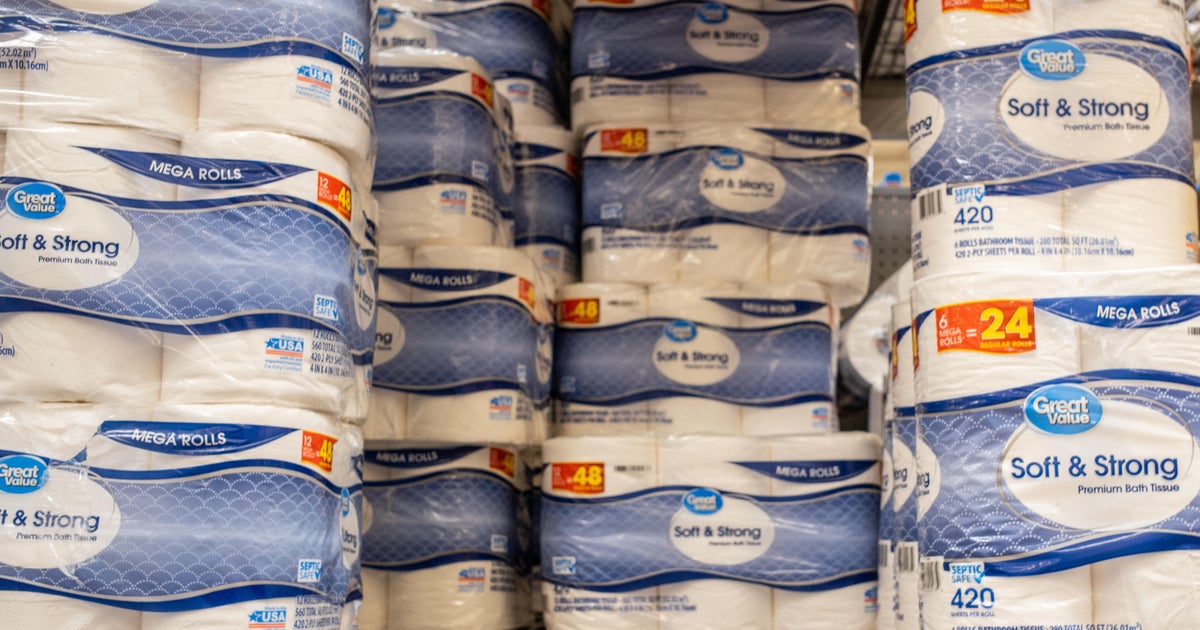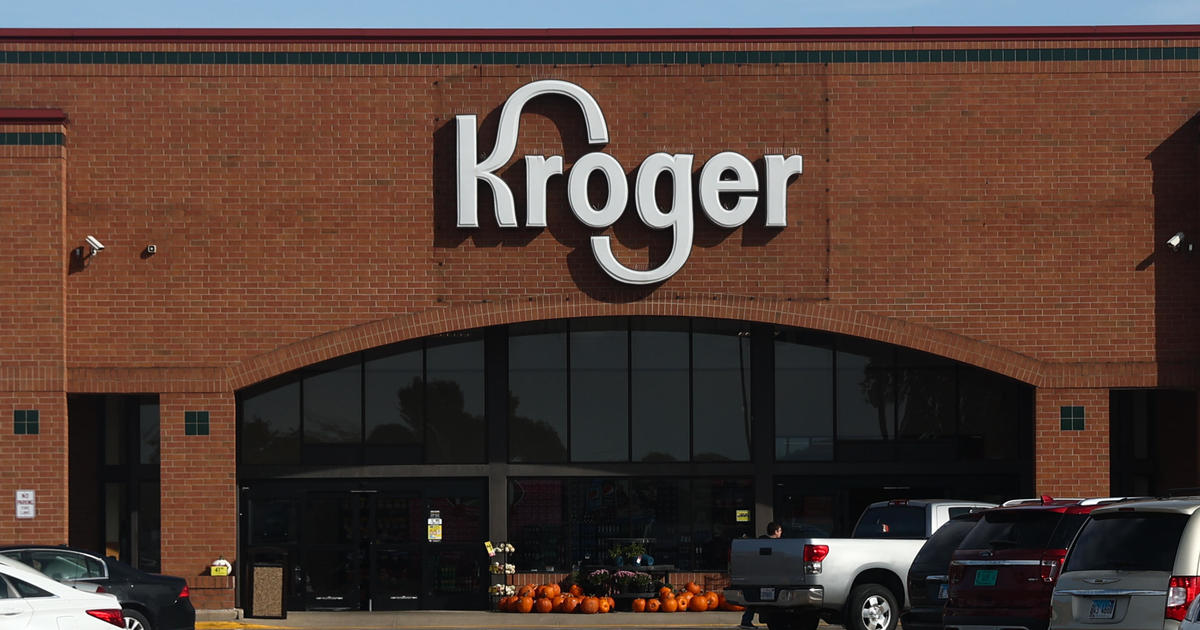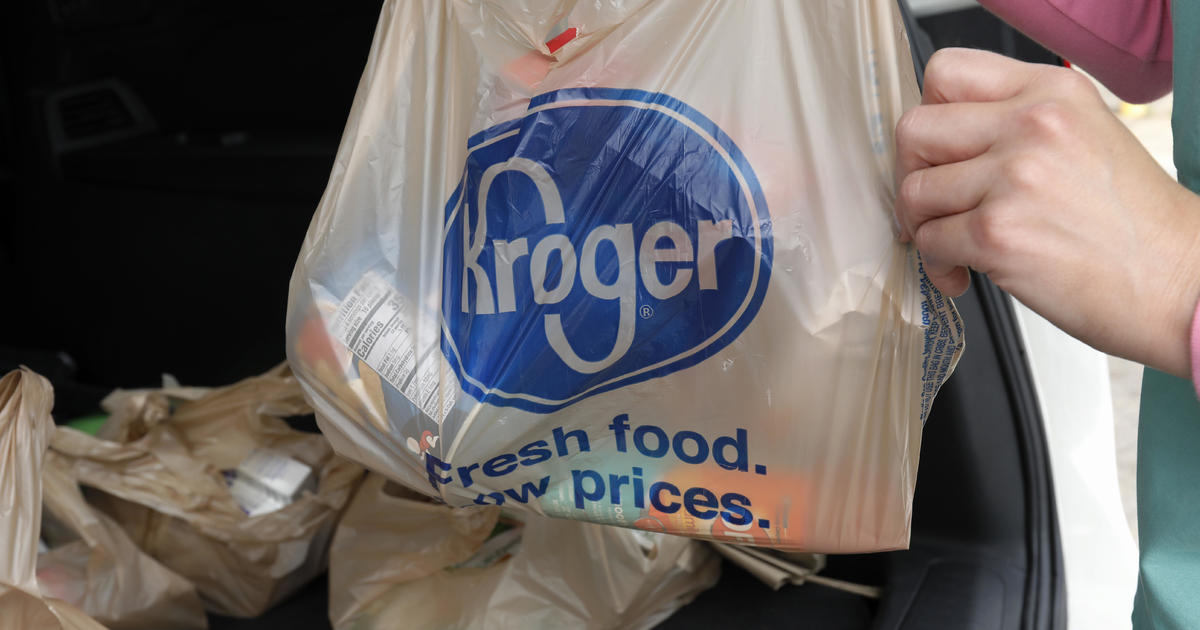CBS News
Kroger-Albertsons merger trial starts. Here’s what to know.

Where Americans shop — and how much they pay — for groceries could hinge on the outcome of a trial starting Monday over whether the proposed merger of supermarket giants Kroger and Albertsons is likely to raise prices for consumers.
The Federal Trade Commission in February filed suit to block the $24.6 billion deal, arguing it would reduce industry competition, hike grocery prices and worsen working conditions for workers. Kroger and Albertsons say joining forces would benefit shoppers by helping the enlarged company compete with discount stores and online rivals.
The hearing in U.S. District Court in Portland, Oregon, is expected to run up to three weeks. Eight states and the District of Columbia are joining the FTC in requesting that the judge temporarily halt the merger to give an administrative judge time to review the case. Separate legal challenges by Colorado and Washington to stop the merger are scheduled to start in September.
Here’s how the merger could impact consumers and grocery costs, and why the feds are looking to block it.
What the FTC says
Allowing Kroger and Albertsons to merge would curtail grocery industry competition, giving the combined more market power at a time food store prices remain elevated, according to the FTC. Big-box chains and other retailing giants use their scale to obtain discounts from suppliers yet continue to maintain prices at above-market levels, antitrust enforcers argue.
“Kroger’s acquisition of Albertsons would lead to additional grocery price hikes for everyday goods, further exacerbating the financial strain consumers across the country face today,” said Henry Liu, Director of the FTC’s Bureau of Competition, in a statement earlier this year.
The FTC also claims the deal would make it harder for unions to negotiate stronger labor contracts, a right protected by federal law, especially in states where both chains have stores near each other.
What Kroger and Albertsons say
Kroger and Albertsons cited mounting competition from the likes of Walmart and Costco as underlying their decision to join forces in announcing their deal in late 2022. The companies also say there is little geographic overlap in their stores.
Cincinnati, Ohio-based Kroger operates runs 2,800 stores in 35 states, including brands like Ralphs, Smith’s and Harris Teeter. Boise, Idaho-based Albertsons operates 2,273 stores in 34 states, including brands like Safeway, Jewel Osco and Shaw’s. Together, the companies employ around 710,000 people.
“Albertsons Cos. brings a complementary footprint and operates in several parts of the country with very few or no Kroger stores,” Kroger CEO Rodney McMullen, who will lead the expanded company, said in a statement when the deal was announced.
In defending the merger, Kroger said last week that it would yield lower prices for customers and enhance workers’ job security. The company also recently said the deal would eventually lower grocery costs by $1 billion. Kroger and Albertsons have said they would spend $1 billion to hike workers wages and benefits and invest $1.3 billion in improving Albertsons stores.
What impact would the deal have?
Consumer prices are in the spotlight in the U.S. presidential election, with Vice President Kamala Harris earlier in the month calling for a ban on price gouging by food suppliers and grocery stores.
Major grocers’ profits climbed during the pandemic, with the biggest players expanding their lead over smaller supermarket chains, the FTC said in a March report.
“As the pandemic illustrated, a major shock to the supply chain can have cascading effects on consumers, including the prices they pay for groceries,” FTC Chair Lina Khan said in a statement at the time.
“The FTC’s report examining U.S. grocery supply chains finds that dominant firms used this moment to come out ahead at the expense of their competitors and the communities they serve,” added Khan, a former law professor and congressional antitrust counsel, who took the helm of the FTC in June 2021.
The impact on shoppers could depend on where they live, according to John Mayo, executive director of the Center for Business and Public Policy at the McDonough School of Business at Georgetown University. His research has found that grocery deals in markets with few competitors often lead to higher prices, while grocery costs in more competitive areas have fallen after major mergers.
—The Associated Press contributed to this report.
CBS News
Here Comes the Sun: Jack Antonoff and more

Watch CBS News
Be the first to know
Get browser notifications for breaking news, live events, and exclusive reporting.
CBS News
Capturing Moriah Wilson’s Killer – CBS News

Watch CBS News
Be the first to know
Get browser notifications for breaking news, live events, and exclusive reporting.
CBS News
How to watch the Minnesota Vikings vs. Chicago Bears NFL game today: Livestream options, more

Getty Images
The Minnesota Vikings will take on the Chicago Bears today. The Vikings are currently 8-2, an impressive run so far this season, and will be looking to add a fourth win to their current streak after last Sunday’s 23-13 win against the Tennessee Titans. The Bears, on the other hand, are entering this game on the heels of a four-game losing streak after a tough 20-19 loss against the Green Bay Packers last Sunday.
Here’s how and when you can watch the Vikings vs. Bears game today, whether or not you have cable.
How and when to watch the Minnesota Vikings vs. Chicago Bears
The Vikings vs. Bears game will be played on Sunday, November 24, 2024 at 1:00 p.m. ET (11:00 a.m. PT). The game will air on Fox and stream on Fubo and the platforms featured below.
How and when to watch the Minnesota Vikings vs. Chicago Bears game without cable
You can watch this week’s NFL game on Fox via several streaming services. All you need is an internet connection and one of the top options outlined below.
Fubo offers you an easy, user-friendly way to watch NFL games on CBS, Fox, NBC, ABC, ESPN, and NFL Network, plus NCAA football channels. The Pro tier includes 200+ channels and unlimited DVR, while the Elite with Sports Plus tier adds NFL RedZone and 4K resolution. New subscribers get a seven-day free trial and all plans allow streaming on up to 10 screens simultaneously.
You can watch today’s game with a subscription to Sling’s Orange + Blue tier, which includes ESPN, ABC, NBC, and Fox. The plan offers 46 channels with local NFL games, nationally broadcast games and 50 hours of DVR storage. For complete NFL coverage, add Paramount+ to get CBS games, or upgrade with the Sports Extra add-on for additional sports channels like Golf Channel, NBA TV and NFL RedZone.
Watching NFL games, including Fox broadcasts, is simple with Hulu + Live TV, which includes 90 channels, unlimited DVR storage, and access to NFL preseason games, live regular season games and studio shows. The service includes ESPN+ and Disney+ in the subscription.
Want to watch today’s game live on your smartphone? If so, NFL+ streaming service is the solution you’re looking for. It lets you watch NFL Network and out-of-market games on mobile devices, with an upgrade option to NFL+ Premium that includes NFL RedZone for watching up to eight games simultaneously. Note that NFL+ only works on phones and tablets, not TVs.









